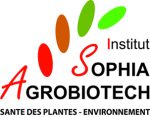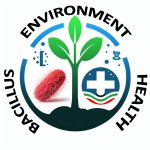Postdoctoral position on enteroendocrine deregulation in Drosophila, Sophia Antipolis, France
Posted by Raphael Rousset, on 12 January 2024
Location: Sophia Antipolis, France
Closing Date: 30 April 2024


Postdoctoral position on enteroendocrine deregulation
after dietary ingestion of Bacillus spores in Drosophila
The Bacillus cereus (Bc) group comprises Gram-positive, facultative anaerobic, spore-forming bacteria that are widely distributed in the environment. These bacteria have a two-stage life cycle: the vegetative cell capable of proliferation and the spore, a dormant form that is resistant to adverse environmental conditions. The group includes B. cereus sensu stricto (Bc ss) and B. thuringiensis (Bt), which are genetically closely related. Bc ss is a food poisoning pathogen that can cause diarrhea (due to the Nhe, Hbl, and CytK enterotoxins) and/or emetic illnesses (due to the cerulide toxin). It is the primary cause of food borne outbreaks (FBO) in France and Europe.
Bt is a microbial insecticide used worldwide in organic and conventional agriculture to control lepidopteran larvae, one of the most important crop pests. In response to societal and governmental demands, Bt insecticides are increasingly replacing chemical insecticides which are more harmful to the environment. Bt produces a protein crystal during sporulation, mainly composed of Cry toxins (δ endotoxins), which give Bt its entomopathogenic power. After spraying, pest larvae ingest Bt products containing spores and toxin crystals. Cry toxins form pores in the intestinal epithelium, enabling bacteria from the lumen to enter the internal milieu. This leads to septicemia of the larva ((it is then said to be a target) within 48-72 hours.
The safety of Bt insecticides towards non-target organisms and humans is a topic of increasing controversy. Recent studies have shown that several strains of Bt found in commercial products have been detected in FBO, indicating that Bt insecticides may pose a real risk to food safety. Furthermore, reliable data on the effects of chronic ingestion of Bt products are not reported in the literature. Finally, the ingestion of spores, unlike vegetative bacteria, has been little studied, and thus their behaviour and effects in the gut are not well understood. These data demonstrate that there is still much to learn about Bc group bacteria.
Our team is particularly interested in understanding host responses to Bc/Bt/toxin ingestion along two lines of research: 1) virulence/modes of action and immune response, and 2) intestinal pathophysiology (inflammation, metabolism, and tumorigenesis). Our study model is Drosophila melanogaster, which is not a target organism for Bt products. This allows us to combine genetic, cellular, molecular biology, and physiological approaches. Recently, we demonstrated that Cry toxins interfere with the adhesion of intestinal stem cells, inducing an overproduction of enteroendocrine cells (Jneid et al., 2023). The post-doctoral fellow will investigate the endocrine deregulations produced by an excess of enteroendocrine cells and their impact on intestinal homeostasis, metabolism, and feeding behaviour. This project aims to enhance our comprehension of the unintended effects on health and the environment of the dietary ingestion of Bt spores.
Location: The candidate will work in the “Bacillus, Environment and Health” team at the Institute Sophia Agrobiotech (ISA; UMR INRAE 1355, CNRS 7254, Université Côte d’Azur) in Sophia Antipolis. ISA is located in a very pleasant environment in the Sophia Antipolis technology park and develops topics at the interface between agriculture, the environment and health. The institute provides a shared infrastructure and advanced expertise, including analytical tools in bioinformatics, mass spectrometry, microscopy, and video-phenotyping. The scientific environment is also very stimulating, with a focus on the Drosophila model, host-pathogen interactions and insect behaviour.
Funding: The position is funded for 24 months (with the possibility of extension), with a contract start date of 01/06/2024.
Publications:
– Jneid R., Loudhaief R., Zucchini-Pascal N., Nawrot-Esposito MP., Fichant A., Rousset R., Bonis M., Osman D., Gallet A. 2023. Bacillus thuringiensis toxins divert progenitor cells toward enteroendocrine fate by decreasing cell adhesion with intestinal stem cells in Drosophila. eLife 12:e80179.
– Hachfi S., Brun-Barale A., Fichant F., Munro P., Nawrot-Esposito M-P., Michel G., Ruimy R., Rousset R., Bonis M., Boyer L. and Gallet A. 2023. Ingestion of Bacillus cereus spores dampens the immune response to favor bacterial persistence. bioRxiv. https://biorxiv.org/cgi/content/short/2023.03.16.532769v1
– Joly A., Rousset R. 2020. Tissue Adaptation to Environmental Cues by Symmetric and Asymmetric Division Modes of Intestinal Stem Cells. International Journal of Molecular Sciences N° 21(17), 6362.
– Joly A., Soltys J., Gallet A., Rousset R. 2020. Impact of Bacillus thuringiensis-based bioinsecticides on the development of intestinal cancers. Médecine/Sciences N° 36 (Hors-série), 23-27.
– Nawrot-Esposito MP., Babin A., Pasco M., Poirié M., Gatti JL., Gallet A. 2020. Bacillus thuringiensis Bioinsecticides Induce Developmental Defects in Non-Target Drosophila melanogaster Larvae. Insects 13;11(10):697.
Required training and skills: It is recommended to have a PhD on the Drosophila model. Desired knowledge includes genetics, cell biology, metabolism, behaviour, immunohistochemistry, and microscopy. Experience in microbiology will be appreciated. Required skills: critical thinking, curiosity, autonomy, initiative, teamwork, and oral and written communication in English.
How to apply: Applications must include a motivation letter, curriculum vitae and the contact information of two referees.
Contact: Raphael ROUSSET (raphael.rousset@univ-cotedazur.fr), Armel GALLET (armel.gallet@univ-cotedazur.fr)
Start date: 1 June 2024
Closing Date: 30 April 2024
Scientific fields: Metabolism and physiology, Development and disease
Model systems: Drosophila
Duration: Fixed term
Minimum qualifications: PhD

